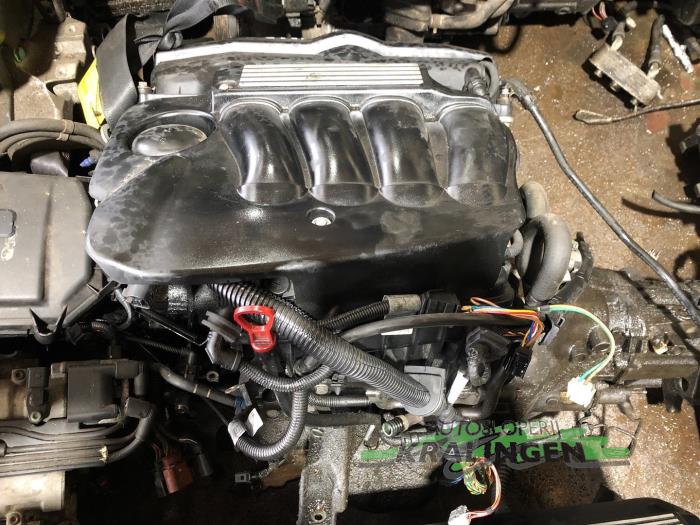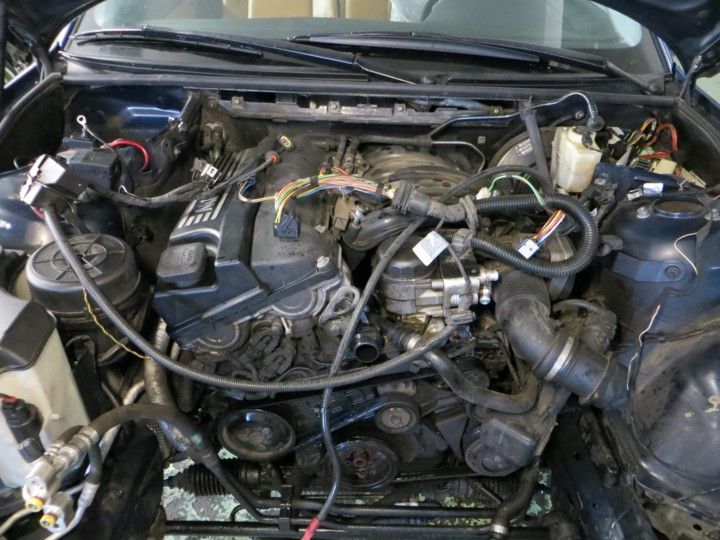Why the BMW 318ti Is a Top Selection for Cars And Truck Lovers
Trick Functions to Seek When Getting an Engine for Automotive Applications
When thinking about the acquisition of an engine for automotive applications, a number of vital functions call for careful analysis to guarantee optimum efficiency and functionality. From power and performance capabilities to fuel performance, adherence, and durability to discharges requirements, each element plays a vital role in figuring out the engine's viability for specific automotive needs.
Power and Performance
When choosing a vehicle engine, customers focus on power and efficiency to make certain optimum driving experience and performance. The power output of an engine, commonly gauged in horse power (HP) or kilowatts (kW), determines the acceleration, full throttle, and overall abilities of a car. Higher power ratings typically cause quicker velocity and much better performance, particularly during overtaking or lugging hefty lots. Efficiency, on the other hand, includes a wider range of characteristics, consisting of fuel effectiveness, emissions, reliability, and overall driving characteristics. A well-performing engine not just supplies power effectively but also runs smoothly across various speed arrays and driving conditions.
Purchasers commonly think about the engine's torque output along with its power rating. Torque, gauged in pound-feet (lb-ft) or Newton-meters (Nm), shows the engine's rotational pressure, affecting the vehicle's capability to tow, climb inclines, and increase from standstill. A balance between power and torque is important for achieving a functional and receptive driving experience. Furthermore, elements such as engine hybrid, turbocharging, and displacement innovations play significant functions in boosting both power and performance levels. Inevitably, selecting an engine that uses a potent combination of power and efficiency ensures a rewarding and reliable driving experience. bmw 318ti.
Gas Efficiency
Enhancing gas performance is a paramount consideration for consumers when examining auto engine options. Modern engines with features like direct fuel shot, turbocharging, and variable shutoff timing can dramatically boost gas efficiency by improving combustion processes and decreasing energy loss.

Resilience and Integrity
Attaining resilient efficiency and reliable procedure is vital for customers assessing the longevity and dependability of auto engines. When considering an engine for vehicle applications, resilience refers to the engine's capability to endure wear, tension, and severe operating problems over an extensive period. Dependability, on the various other hand, indicates that the engine can regularly do its desired feature without unexpected failures or failures.
Consumers must seek engines created with premium products and specific design to ensure longevity. Parts such as crankshafts, pistons, and bearings need to be durable to handle the engine's power output without premature wear. Furthermore, engines geared up with sophisticated air conditioning systems, efficient lubrication, and durable filtering systems have a tendency to exhibit greater levels of integrity.
Regular upkeep and adherence to manufacturer recommendations are also crucial consider protecting an engine's durability and reliability. By adhering to maintenance routines, utilizing suggested fluids, and attending to any type of issues promptly, consumers can optimize the lifespan and performance of their automotive engines. Inevitably, prioritizing durability and integrity in engine option can cause a more satisfying possession experience with fewer unexpected interruptions.
Emissions Conformity
Ensuring conformity with emissions regulations is a critical facet of assessing automotive engines for eco mindful consumers. With enhancing concerns regarding air high quality and ecological impact, rigorous discharges standards have actually been put in area internationally to reduce hazardous pollutants launched into the ambience. When buying an engine for automotive applications, it is crucial to consider its discharges conformity to reduce the carbon impact and stick to legal requirements.
Modern engines are equipped with sophisticated discharge control modern technologies such as catalytic converters, exhaust gas recirculation (EGR) systems, and careful catalytic reduction (SCR) to decrease unsafe exhaust gases like nitrogen oxides (NOx), carbon monoxide (CARBON MONOXIDE), and hydrocarbons (HC) These systems play a critical role in making certain that the engine fulfills the defined emissions requirements and runs within permissible limitations.

Cost-effectiveness
When taking into consideration automobile engine purchases, examining cost-effectiveness is paramount for consumers looking for both efficiency and value. It encompasses the total costs associated to maintenance, gas usage, and potential repairs over the engine's life-span.
One trick aspect of cost-effectiveness is gas effectiveness. Engines that are made to optimize fuel economy can bring about considerable savings with time, particularly for individuals that drive often or over fars away. In addition, thinking about the availability and price of spare components and servicing can add to the overall cost-effectiveness of an engine. Ensuring that upkeep and repair services are easily accessible and sensible can stop unexpected economic worries down the line.

Conclusion
Finally, when buying an engine for automobile applications, it is important to take into consideration essential functions such as power and efficiency, gas performance, resilience and dependability, exhausts conformity, and cost-effectiveness. These aspects are necessary in making sure that the engine satisfies the needs of the lorry and runs successfully in various driving problems - bmw 318ti. Making a notified decision based upon these standards will eventually result in a successful and reliable automotive engine acquisition
From power and performance capacities to sustain adherence, efficiency, and longevity to exhausts criteria, each facet plays a critical function in establishing the engine's suitability for details vehicle needs. Engines made to run on alternative gas such as electric power, crossbreed systems, or biofuels can offer better fuel economic situation and lower emissions compared to standard gasoline or diesel engines. Customers should very carefully consider the fuel performance ratings and innovations incorporated into vehicle engines to make informed acquiring decisions that align with their top priorities for cost savings and go to this website sustainability.
When taking into consideration an engine for automotive applications, toughness refers to the engine's capability to endure wear, anxiety, and harsh operating conditions over an extensive period.In verdict, when buying an engine for vehicle applications, it is essential to take into consideration key attributes such as power and click here for info performance, gas resilience, effectiveness and dependability, exhausts conformity, and cost-effectiveness.